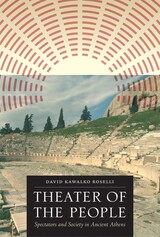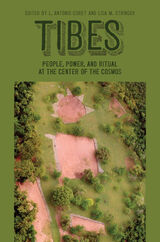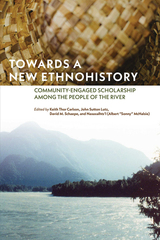9 start with T start with T

Today, more than fifty million Americans traipse through wetlands at dawn, endure clouds of mosquitoes, and brave freezing autumn winds just to catch a glimpse of a bird. The human desire to connect with winged creatures defies age and generation. In the Midwest, humans and birds have lived together for more than twelve thousand years. Taking Flight explores how and why people have worshipped, feared, studied, hunted, eaten, and protected the birds that surrounded them.
Author and birder Michael Edmonds has combed archaeological reports, missionaries’ journals, travelers’ letters, early scientific treatises, the memoirs of American Indian elders, and the folklore of hunters, farmers, and formerly enslaved people throughout the Midwest to reveal how our ancestors thought about the very same birds we see today. Whether you’re a casual bird-watcher, a hard-core life-lister, or simply someone who loves the outdoors, you’ll look at birds differently after reading this book.

"In tax administration," writes the author, "all countries can learn from each other." This revealing case study of the development of Israel's tax system--a system which has dealt with the full panoply of problems that tax administrators must face and which is further characterized by heavy taxation--offers a wealth of noteworthy examples for other countries.
Harold C. Wilkenfeld presents a detailed account of the historical and economic realities that forged Israel's elaborate tax structure from the Ottoman period to the present day. He scrutinizes such areas as the crises that Israel's tax administration faced shortly after the State achieved its independence, the problems which had to be solved, the formulation of administrative policy, the interplay of a developing civil service and a developing citizenry. All of these areas are viewed in the context of an evolving economy and a continuing external conflict.
The author presents practical guidelines for countries interested in advancing the effectiveness of tax administration. For instance, many of the Israeli administration's tactics against tax evasion may be transplantable to other nations. Likewise, a number of the technical solutions to administrative problems of both direct and indirect taxes can certainly and readily be adapted to conditions in a number of developing countries.
Taxes and People in Israel comes as a welcome addition to a field which offers few critical, historical studies of the entire tax system of a country. It will be of considerable interest to tax administrators and ought to be read by every new head of a tax administration. It should also prove a valuable source to public administrators, lawyers, sociologists, economists, and anyone concerned with giving fiscal advice to the developing countries.

In Teachers of the People, Dana Villa takes us back to the moment in history when “the people” first appeared on the stage of modern European politics. That moment—the era just before and after the French Revolution—led many major thinkers to celebrate the dawning of a new epoch. Yet these same thinkers also worried intensely about the people’s seemingly evident lack of political knowledge, experience, and judgment. Focusing on Rousseau, Hegel, Tocqueville, and Mill, Villa shows how reformist and progressive sentiments were often undercut by skepticism concerning the political capacity of ordinary people. They therefore felt that “the people” needed to be restrained, educated, and guided—by laws and institutions and a skilled political elite. The result, Villa argues, was less the taming of democracy’s wilder impulses than a pervasive paternalism culminating in new forms of the tutorial state.
Ironically, it is the reliance upon the distinction between “teachers” and “taught” in the work of these theorists which generates civic passivity and ignorance. And this, in turn, creates conditions favorable to the emergence of an undemocratic and illiberal populism.

With a bounty of locally grown meats and produce, artisanal cheeses, and a flourishing wine culture, it’s a luscious time to be cooking in Texas. From restaurant chefs to home cooks, Texans are going to local dairies, orchards, farmers’ markets, ranches, vineyards, and seafood sellers to buy the very freshest ingredients, whether we’re cooking traditional favorites or the latest haute cuisine. We’ve discovered that Texas terroir—our rich variety of climates and soils, as well as our diverse ethnic cultures—creates a unique “taste of place” that gives Texas food a flavor all its own.
Written by one of Texas’s leading cookbook authors, Terry Thompson-Anderson, Texas on the Table presents 150 new and classic recipes, along with stories of the people—farmers, ranchers, shrimpers, cheesemakers, winemakers, and chefs—who inspired so many of them and who are changing the taste of Texas food. The recipes span the full range from finger foods and first courses to soups and breads, salads, seafood, chicken, meat (including wild game), sides and vegetarian dishes, and sweets. Some of the recipes come from the state’s most renowned chefs, and all are user-friendly for home cooks. Finally, the authors and winemakers tell which recipes they turn to when opening their favorite wines.
This delicious compilation of recipes and stories of the people behind them, illustrated with Sandy Wilson’s beautiful photographs, makes Texas on the Table the must-have cookbook for everyone who relishes the flavors of the Lone Star State.

Greek drama has been subject to ongoing textual and historical interpretation, but surprisingly little scholarship has examined the people who composed the theater audiences in Athens. Typically, scholars have presupposed an audience of Athenian male citizens viewing dramas created exclusively for themselves—a model that reduces theater to little more than a medium for propaganda. Women's theater attendance remains controversial, and little attention has been paid to the social class and ethnicity of the spectators. Whose theater was it?
Producing the first book-length work on the subject, David Kawalko Roselli draws on archaeological and epigraphic evidence, economic and social history, performance studies, and ancient stories about the theater to offer a wide-ranging study that addresses the contested authority of audiences and their historical constitution. Space, money, the rise of the theater industry, and broader social forces emerge as key factors in this analysis. In repopulating audiences with foreigners, slaves, women, and the poor, this book challenges the basis of orthodox interpretations of Greek drama and places the politically and socially marginal at the heart of the theater. Featuring an analysis of the audiences of Aeschylus, Sophocles, Euripides, Aristophanes, and Menander, Theater of the People brings to life perhaps the most powerful influence on the most prominent dramatic poets of their day.

This is a twentieth-century reissue of a distinguished book--a collection of the impressions and experiences of European travelers to America over three centuries, revealing much about the changing viewpoints of Europeans toward the United States.
Oscar Handlin has added a new preface, written from the perspective of 1969. He points out that in 1919 when This Was America was first published, strains among the wartime allies had already appeared, but they had not weakened the memory of joint efforts to defeat Fascism. Anti-Americanism was not yet widespread.
Europeans generally have tended to see in the United States developments which they either disliked intensely or cherished devotedly, and quite naturally their accounts of travels through this country have reflected their feelings. But, however biased, their reports help bring into perspective the troubles of the present as they provide valuable insights into the problems of the past.
The authors of these papers came from many walks of life. They were businessmen, land speculators, merchants, government officials, exiles, artists, students, and priests. What they wrote has a directness of perception and expression that allows both the Old World temper and the New World atmosphere to come vividly alive. Their subjects are as varied as the interests that led them to America.
Here are observations on the country's physical beauty and spaciousness as well as on its social and governmental institutions. More significant, however, are the observations on Americans as individuals, their domestic manners, their ways of life, their adaptations to the new continent and the new society. Oscar Handlin gives us the very cream of their comments, preceded by an introductory paragraph and so organized as to tell an orderly and connected story of American social history. The result is a well founded, entertaining commentary on the United States.

The prehistoric civic-ceremonial center of Tibes is located on the southern coast of Puerto Rico, just north of the modern coastal city of Ponce. Protected on two sides by a river, and on the other two sides by hills, this approximately 10.5-acre site remains as fertile and productive today as when first occupied over 2,000 years ago. Such a rich region would have been a choice location for native peoples because of the diversity in all resources, from land, air, and sea--and also symbolically crucial as a liminal space within the landscape. It may have been regarded as a space charged with numen or cosmic energy where different parts of the cosmos (natural vs. supernatural, or world of the living vs. world of the dead) overlap. Archaeological evidence reveals a long occupation, about 1,000 years, possibly followed by an extensive period of sporadic ceremonial use after the site itself was practically abandoned.
In this volume, nineteen Caribbeanists, across a wide academic spectrum, examine the geophysical, paleoethnobotanical, faunal, lithics, base rock, osteology, bone chemistry and nutrition, social landscape, and ceremonial constructs employed at Tibes. These scholars provide a concise, well-presented, comprehensive analysis of the evidence for local level changes in household economy, internal organization, accessibility to economic, religious, and symbolic resources related to the development and internal operation of socially stratified societies in the Caribbean.


READERS
Browse our collection.
PUBLISHERS
See BiblioVault's publisher services.
STUDENT SERVICES
Files for college accessibility offices.
UChicago Accessibility Resources
home | accessibility | search | about | contact us
BiblioVault ® 2001 - 2024
The University of Chicago Press









